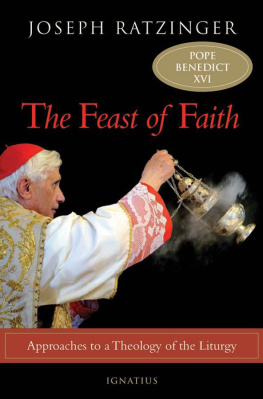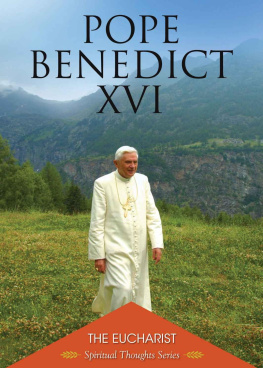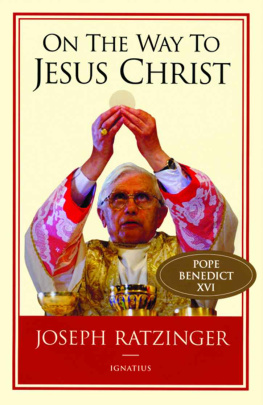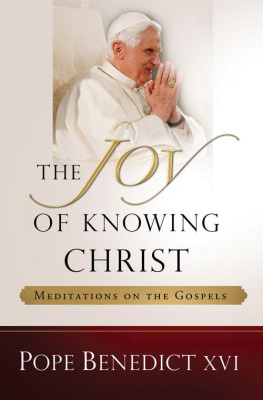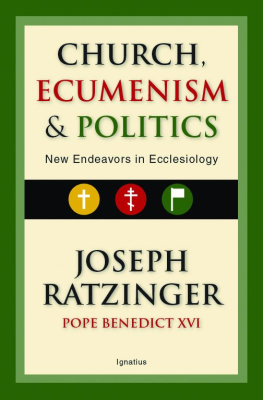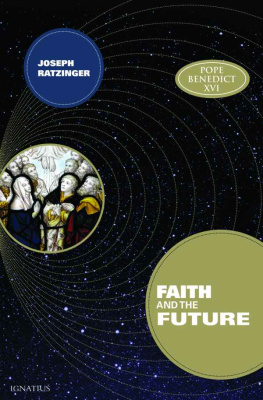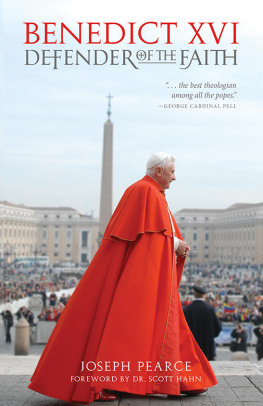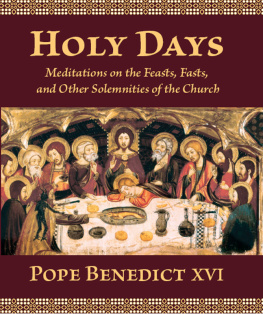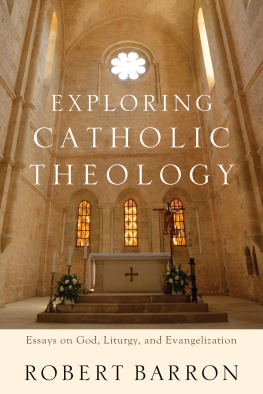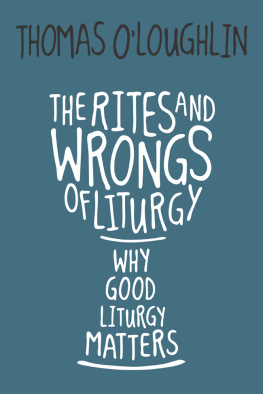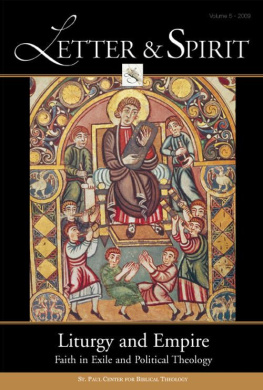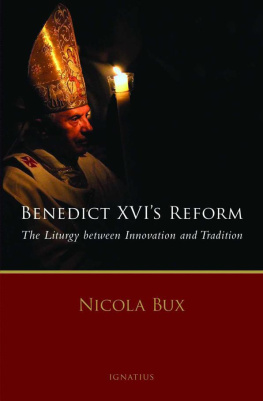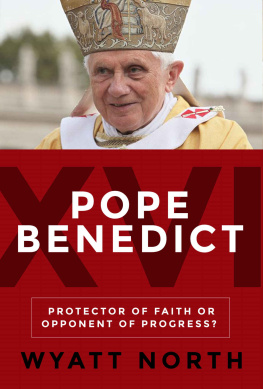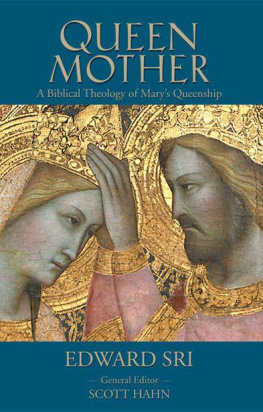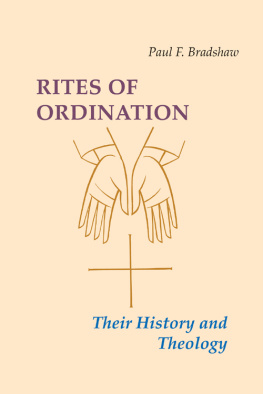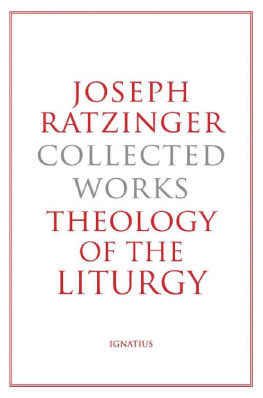Benedict XVI - The Feast of Faith: Approaches to a Theology of the Liturgy
Here you can read online Benedict XVI - The Feast of Faith: Approaches to a Theology of the Liturgy full text of the book (entire story) in english for free. Download pdf and epub, get meaning, cover and reviews about this ebook. year: 1986, publisher: Ignatius Press, genre: Religion. Description of the work, (preface) as well as reviews are available. Best literature library LitArk.com created for fans of good reading and offers a wide selection of genres:
Romance novel
Science fiction
Adventure
Detective
Science
History
Home and family
Prose
Art
Politics
Computer
Non-fiction
Religion
Business
Children
Humor
Choose a favorite category and find really read worthwhile books. Enjoy immersion in the world of imagination, feel the emotions of the characters or learn something new for yourself, make an fascinating discovery.
- Book:The Feast of Faith: Approaches to a Theology of the Liturgy
- Author:
- Publisher:Ignatius Press
- Genre:
- Year:1986
- Rating:3 / 5
- Favourites:Add to favourites
- Your mark:
- 60
- 1
- 2
- 3
- 4
- 5
The Feast of Faith: Approaches to a Theology of the Liturgy: summary, description and annotation
We offer to read an annotation, description, summary or preface (depends on what the author of the book "The Feast of Faith: Approaches to a Theology of the Liturgy" wrote himself). If you haven't found the necessary information about the book — write in the comments, we will try to find it.
The Feast of Faith: Approaches to a Theology of the Liturgy — read online for free the complete book (whole text) full work
Below is the text of the book, divided by pages. System saving the place of the last page read, allows you to conveniently read the book "The Feast of Faith: Approaches to a Theology of the Liturgy" online for free, without having to search again every time where you left off. Put a bookmark, and you can go to the page where you finished reading at any time.
Font size:
Interval:
Bookmark:
The Feast of Faith
JOSEPH CARDINAL RATZINGER
Approaches to a Theology of the Liturgy
Translated by Graham Harrison
IGNATIUS PRESS SAN FRANCISCO
Title of the German original:
Das Fest des Glaubens
1981 by Johannes Verlag
Einsiedeln, Switzerland
Photograph of Joseph Cardinal Ratzinger by
Catholic Press Photo
Cover design by Roxanne Mei Lum
With ecclesiastical approval
1986 by Ignatius Press, San Francisco
Reprinted in 2006
All rights reserved
ISBN 978-0-89870-056-5
ISBN 0-89870-056-6
Library of Congress Control Number 85-82175
Printed in the United States of America
Part One
Basic Considerations in a Theology of Liturgy
Postscript 1
Postscript 2
Part Two
Practical Applications
Eastward- or Westward-Facing Position?
A Correction
Faced with the political and social crises of the present time and the moral challenge they offer to Christians, the problems of liturgy and prayer could easily seem to be of second importance. But the question of the moral standards and spiritual resources that we need if we are to acquit ourselves in this situation cannot be separated from the question of worship. Only if man, every man, stands before the face of God and is answerable to him, can man be secure in his dignity as a human being. Concern for the proper form of worship, therefore, is not peripheral but central to our concern for man himself.
So it seemed worthwhile to present for publication a collection of pieces on the question of Christian liturgy. They arose in part from the needs of my official ministry and in part from the reflection which is inseparable from it. All the chapters were revised and reedited for this publication. They can be no more than fragments, characterized and no doubt limited by the particular contemporary situation; yet perhaps for that very reason they may help others to come to grips with todays issues. All that is written here is governed by the one fundamental question, namely, how, under modern conditions, we can pray and join in the Churchs praise of God, and how we can see and experience the salvation of man and the glory of God as a single whole.
Joseph Cardinal Ratzinger
Munich, Ash Wednesday, 1981
Part One
I . The End of Religion ?
1. A contemporary dispute
A few years ago those interested in the debate about Christianity could have followed a characteristically confusing dispute which appeared in the Sddeutsche Zeitung .
According to Fr. Hertzs scheme of history, private piety was able to keep going for a long time after the demise of public religion. God was no longer responsible for the events of war as a whole but only for the fate of his faithful ones. It is thus an easy matter to describe this phase of religious history as schizophrenia and go on to make the reader aware that the time for private piety, too, has run out. No doubt all men may aspire to this readiness, this capacity, especially as what it implies is left totally vague.
However, while the good Dominican was endeavoring to console the reader for the loss of a personal God (albeit by too obvious a sleight-of-hand in the matter of prayer in time of war), the political theorist Lobkowicz was pulling the veil from his somewhat confused arguments. Not mincing matters, he simply asked what this self-transcendence meant: What good is it for Hertz to urge us to transcend ourselves? A propos, it is noticeably those who think they are too superior to talk simply and concretely of God who are in the habit of talking about transcendence.... Suppose I had achieved this transcendence and come face to face with the ultimate ground of being which is manifest everywhere in the world, wherever man is searching for the abiding meaning of his existence. What then? Do I respectfully salute this ground of being and simply return to the hardness of my daily life?or does this encounter become a fundamental experience causing me to see everything differently and revolutionizing my behavior?
This drama, in which theology keeps talking although the God who can speak and listen has long ago submerged together with the myths, is fascinating in the way it seems to spread, presenting itself quietly, piously, without the least trumpeting of heresy, as the most natural thing in the world. It is impossible to read without deep sadness the prayer, expressive of this approach, with which G. Hasenhttl concludes his Introduction to the Doctrine of Goda prayer which no longer addresses anyone, desperately trying to convince itself that man still has access to meaning and love and that the experience of this is God for man. Let us read a little of it to see what transcendence means in this kind of theologya somber dialogue with the void, trying to keep up its courage and calling itself prayer:
It was easy to pray when in simplicity of heart I could still kneel down and know that there was a God in heaven to see me. I could lay my anxieties and joys before him and know that he heard me, even if I could not always experience that he did.Today I am part of a social order in which the relation of lord to servant has finally been abolished, and this means that I can no longer feel that God is Lord and I am his unworthy servant. It would be meaningless now to fall down in worship with eyes full of tears of joy or sorrow. It is hard now to address God as Thou, for the only Thou I know is the human Thou, in all its ambivalence. I am a partner to my fellow men in society, but God is not my partner....So I know, here and now, stripped of all illusions, that I am affirmed, that there is meaning in the absurdity of life, a meaning which brings happiness. I am affirmed every time I give love, when I collaborate in the making of the society of the future, for all its provisional character. So, even today, I can cry out like the psalmist thousands of years ago and say: Yes, he is; I am affirmed; God is! And if you want to dispense with the word God, well and good, but keep its place open, for the reality it signifies will come to you, will force you to decide, and in love it will be revealed to you and you will find yourself crying out: Yes, do you see? God is when men love one another!It often happens nowadays that we can no longer call upon God because he is not the powerful Lord; similarly we cannot live in hope of a paradisal future since it is only a creation of mans imagination. But we can thank and pray, knowing, in all our brokenness, that today itself gives us hope for the future; we live today believing in new possibilities; today we can love, we will love, for it is only today that we can experience God, it is only today that he is near to us.2. Where does the Bible stand?
We do not know what human experiences, sufferings and crises lie behind words such as these; we must respect them: it is not our business to judge. On the other hand, we are obliged to state firmly that this is not Christian theology. For the prime characteristic of Christian faith is that it is faith in God. Furthermore, that this God is someone who speaks, someone to whom man can speak. The Christian God is characterized by revelation, that is, by the words and deeds in which he addresses man, and the goal of revelation is mans response in word and deed, which thus expands revelation into a dialogue between Creator and creature which guides man toward union with God. So prayer is not something on the periphery of the Christian concept of God; it is a fundamental trait. The whole Bible is dialogue: on the one side, revelation, Gods words and deeds, and on the other side, mans response in accepting the word of God and allowing himself to be led by God. To delete prayer and dialogue, genuine two-way dialogue, is to delete the whole Bible.
Next pageFont size:
Interval:
Bookmark:
Similar books «The Feast of Faith: Approaches to a Theology of the Liturgy»
Look at similar books to The Feast of Faith: Approaches to a Theology of the Liturgy. We have selected literature similar in name and meaning in the hope of providing readers with more options to find new, interesting, not yet read works.
Discussion, reviews of the book The Feast of Faith: Approaches to a Theology of the Liturgy and just readers' own opinions. Leave your comments, write what you think about the work, its meaning or the main characters. Specify what exactly you liked and what you didn't like, and why you think so.

